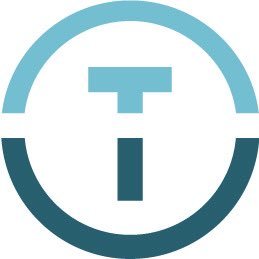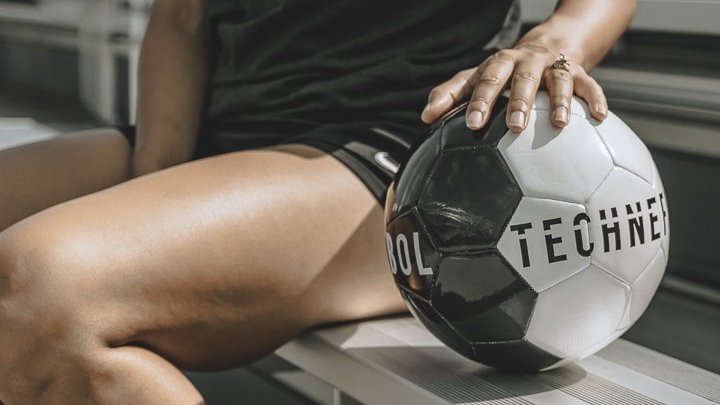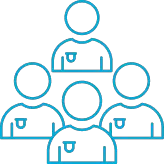 (Guest Post From Techne Futbol) – Techne reached out to their community of parents to find out what questions they had about individual training and supporting their players. Here’s what they got back, unfiltered, and answered by former pro and current GM for Gotham FC, Techne Founder, Yael Averbuch (@Yael_Averbuch).
(Guest Post From Techne Futbol) – Techne reached out to their community of parents to find out what questions they had about individual training and supporting their players. Here’s what they got back, unfiltered, and answered by former pro and current GM for Gotham FC, Techne Founder, Yael Averbuch (@Yael_Averbuch).
Is the desire to compete teachable? If so, how?
Some people are just naturally more competitive than others. But something that can be taught is the value and joy in competing. It’s important that players understand that competition is not just against an opponent on game day. Players should compete i training against their own teammates as well as compete against themselves to try to improve. That understanding is certainly teachable. Through our Time Trials and Leaderboards we hope to bring awareness to scoring and improvement, which can help players gain the desire to compete.
What should we be looking for in a club?
The most important thing to look for in a club, regardless of your player’s level, is a focus on development and coaches who make the game fun. At the youth level, winning should always take a back seat to teaching players how to be there best and enjoy the game and improving.
What are the technical differences that separate competitive league players to those of D1 college players?
As players progress through various levels of the game, it’s actually surprising to most people how few totally new technical skills are learned. Most of the basic skills players learn as young club players are the skills they will need for the majority of their soccer career. What does change is the ability to do the skills more quickly, more efficiently, and under greater pressure with heightened intensity. Top level college soccer is a lot faster and more intense than youth soccer. So players will need to be able to refine their skills to be able to have them available as the intensity of the game increases.
My child is new to this, if it were your first day first lesson ,where do I start? What place on the app and what location is best?
After filling out their profile, a player should go to the Training Page (soccer ball icon in the middle of the bottom menu bar). A great place to start is by trying a few of our Time Trial skill tests. This will allow a player to get a baseline score that they can then work to improve. Depending on the player’s level they can then work on their first training session in the app – either This Week’s Session or the Fundamentals (for younger or beginning players). These sessions guide players in exactly what they need and what to do, so all they have to do is follow along!
What are good meals to have on game day?
Many players have specific preferences and dietary restrictions but the most important thing on game day is to fuel and hydrate well and at the correct times. In the 24 hour leadup to a game, players should be sure to drink plenty of fluids. It’s important to eat solid meals on game day, but not too close to the game (ideally, for high/intense levels of play, the last meal should be 3-4 hours prior to the game with a snack closer to gametime). Plenty of carbohydrates and proteins are important so in general things like eggs, chicken breast, whole wheat breads or pastas, as well as fruits and vegetables that don’t cause gas and bloating are all great choices. Each player should determine what foods sit well with them and adjust their game day meals over time.
How long should they practice in one session (when practicing alone)?
The duration of an individual training session will depend on many factors: a player’s age, level, goals, and how much other programming they have that week. Typically, you don’t need much time to get in a quality technical training session. 15-60 minutes is a good rule of thumb. It’s important to think of individual training as cumulative. Players should consider how much they are training on a weekly basis and strive to be as consistent as possible. It’s best to train for 15 minutes 3 times each week then an extra 3 hours once a month.
What are the signs of burn out? How do you avoid it?
Players should enjoy playing soccer and training for soccer. If your player dreads training or doesn’t seem to enjoy playing, it could be a sign that it’s just too much for them. Physical and mental fatigue can also be signs of burn out. It’s ok for players to be tired on occasion due to a high volume of playing and training. But they should not feel that way throughout the entire year. Balance is key to keeping players feeling fresh and motivated.
What are the best ways to get connected to, and noticed by, college soccer recruiters?
Every player looking to play in college should have a soccer resume. This way you can let coaches know a bit about you and where they can watch you play. Players should not try to do anything different or more flashy than they would normally do on the field if college coaches are watching. Coaches want to see players who work hard, react well after mistakes, and who are good teammates. It’s not just about scoring goals or not messing up. You should email coaches and let them know if you’d like them to consider you for their program, and if they are considering you, just be yourself!
Can we have a more thorough walk through on lace passing? Do we need to actually make contact with the laces or can it be the really high up on the inside foot (almost to the laces)?
Striking the ball well with the laces is one of the most difficult techniques to learn. The important thing to know is that every player will have a slightly different technique, depending on their physical makeup and the size of their feet and legs. Typically, the ball should make contact on the hard bone that protrudes slightly from the top of the foot (slightly to the inside of the shoe laces, if they run down the center of the foot, and closer to the ankle than the toes). Players should approach the ball at a slight angle and turn the foot out slightly, so the toe is not pointed directly down at the ground.
Does it matter which areas they practice in? For instance, should they do multiple types (wall, dribbling, etc.) in each session, or is it ok to cover just one area?
Our weekly training sessions are designed so that a player can either go through the entire thing as one session, or so that it can be broken up into mini sessions to work on just Juggling, Dribbling, or Wall Work. It’s intended to be flexible to fit your time, schedule, access to space, and focus level.
What is the recipe for a gold star parent? (Dos and Don’ts)
Show interest and excitement and help make it as fun as possible for your player. Do not force them to do anything they don’t want to, but help guide and suggest positive training and preparation habits. The most important things you can offer are companionship and support. Be there for them when things don’t go their way and set a good example – help them to take responsibility rather than blaming the coach or talking negatively about teammates.
I feel like my player’s juggling hasn’t been progressing. It’s plateau’d for the last couple weeks. Is there some milestone my player should be focusing on or some detail they should be challenging themselves with?
Plateaus in learning to juggle are completely normal and should be expected! The key is to continue to practice and to not always expect progress. One of the best lessons you can help teach your player is the patience and grit to stick with it, even when it’s frustrating or doesn’t seem to be immediately paying off. As long as the player is training with focus and has enough creative ideas of fun things to practice, it’s good to have scores and benchmarks to measure improvement, but the focus doesn’t always have to be on measurable progress. Be sure to let them know how proud you are of them for continuing to train consistently!
Will the app ever allow “skip” days for players who need a rest but want to keep their training streak?
Our training streak feature is intended to help bring awareness to consistency and certainly not to add stress or encourage over training! We have plans for an eventual Streak Freeze feature, but in the meantime we hope that you can help teach your kids that balance is important, and while you should aim to train regularly, if you need a rest or lose your training streak, it’s a new challenge to start over and build it up again. That is one of the many life lessons they can learn through their training! You can also encourage your player to use our Recovery and Mental Training sessions to stay active in the app and work on improving even if they need a rest physically.
For more FAQs be sure to check out the Fundamentals Section in the Techne App for videos specifically for parents!









